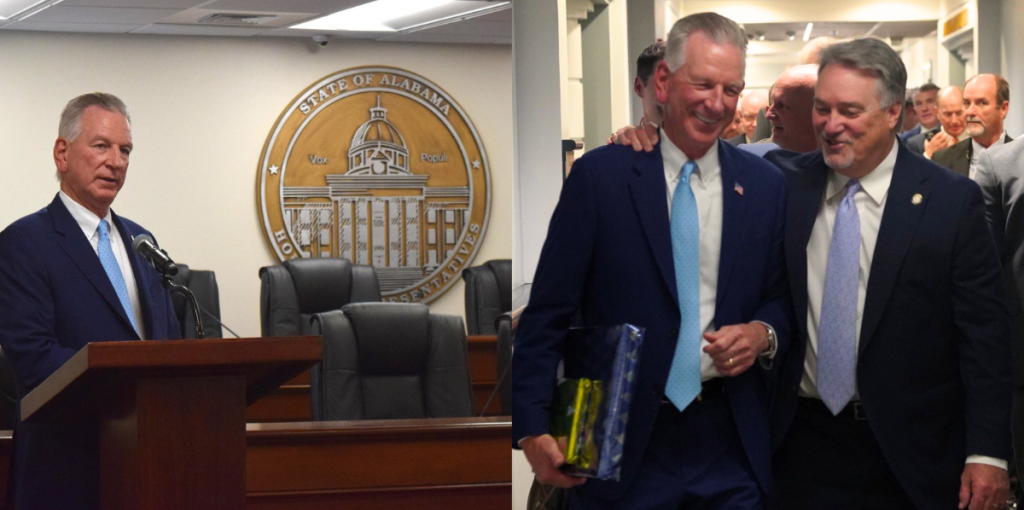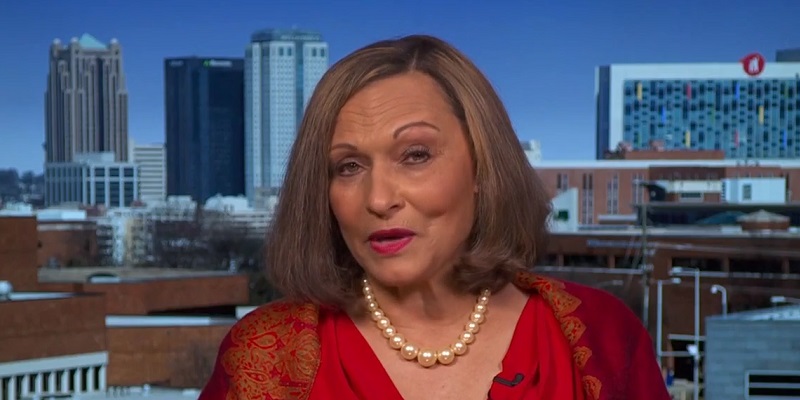“Rumors and Rumblings” is a regular feature on Yellowhammer News. It is a compilation of the bits and pieces of information that we glean from conversations throughout the week.
Enjoy.
1. The Alabama Policy Institute (API) hosted a panel discussion last night in Huntsville. Among the many topics discussed was one which has bubbled under the surface for quite a while: What will happen to Huntsville in the next round of apportionment following the 2020 census?
The Alabama legislature will take up the task of updating the state’s congressional districts based on those census numbers during its 2021 session. Most expect population shifts — as well as population loss — to result in some significant changes in the district lines for members of Congress.
Discussion at the API event centered, specifically, on whether Rep. Robert Aderholt (AL-04) would want to absorb parts of Huntsville into his district. His fourth congressional district currently ends south of the Rocket City. Panelists speculated that he may wish to include some of the areas, such as Redstone Arsenal and Research Park, which contain key aerospace industry stakeholders.
That scenario spurred discussion about what such a change might mean to Rep. Mo Brooks (AL-05). Brooks currently has the entirety of Huntsville contained within his district. Now that Brooks is officially out of the 2020 U.S. Senate race, might his approach change to reapportionment? Or could his stated interest in running for the U.S. Senate race in 2022 — if Sen. Richard Shelby (R-AL) decided to retire — focus his attention elsewhere?
As a participant on the panel, State Rep. Terri Collins (R-Decatur) advised to consider carefully whether to split up a city between districts. She recalled that her hometown of Decatur was, at one time, split between the districts of Aderholt and former Congressman Bud Cramer. She felt that it did not work well for Decatur and may not work well for Huntsville.
One of the other scenarios being bandied about could make the discussion moot. Some believe a decrease in Alabama’s population could result in the state losing a congressional seat. The merger of Aderholt’s district with that of Brooks is one of the options being rumored in that case.
2. As ridiculous as the whole spectacle has been, don’t discount the impact State Rep. John Rogers (D-Birmingham) could have on the 2020 U.S. Senate race. National Journal even touched on this in one of their daily email blasts this week.
Important read from @dagerber on the threat state Rep. John Rogers poses for Doug Jones’ already shaky re-election campaign pic.twitter.com/p19ONKcaUV
— Jesse Hunt (@JJHunt10) May 9, 2019
What hasn’t been mentioned yet is how the whole Rogers/Jones dynamic ties into the fight Jones has picked with the ADC, the black caucus of Alabama’s Democratic Party.
Jones has been fighting with the ADC and the state party, which longtime ADC head Joe Reed is viewed as controlling, since 2017 when Jones publicly complained they didn’t help him enough in the general election. Of course, things really came to a head when Jones backed a failed takeover of the state party last summer. And, as this possible Rogers primary challenge unfolds, the party is reaching the end of the timeframe that the DNC gave Worley and Reed to hold a do-over election for its leadership. There are whispers around Goat Hill that Jones is now seeing the fruits of picking a fight with the ADC, jeopardizing the already long-shot chance he has at re-election in 2020.
3. The lottery bill, SB 220, has become another example of State Rep. Bill Poole’s (R-Tuscaloosa) huge influence in the House.
Poole’s statesmanship delivered another major win for the ETF on Thursday when the House Economic Development and Tourism Committee unanimously adopted a substitute version of the lottery bill that will now send 25 percent of revenues to the ETF rather than education getting none of the lottery windfall. That Poole helped deliver this important concession quietly and effectively behind the scenes (yet again) only adds to what has been a historic few months for him. Kudos also go to State Rep. Steve Clouse (R-Ozark), that chamber’s general fund chair and House carrier of the bill, who helped reach the compromise in an amicable and clean way, giving the lottery the best chance of passing possible on the floor.
4. Speaking of the lottery, there are a lot of major issues and spending priorities being intertwined in the conversation around SB 220. Senate President Pro Tem Del Marsh (R-Anniston) has publicly emphasized the importance of bolstering general fund revenues, and he made another compelling case to House Minority Leader Anthony Daniels (D-Huntsville) this week.
Daniels met with Marsh on Wednesday, continuing Marsh and other Republican leaders’ pledge (made during the Rebuild Alabama process) to hold substantive discussions with Democrats in the legislature about healthcare needs in the state. Daniels told reporters after the meeting on Wednesday that Marsh had committed to working on Medicaid expansion. However, Marsh’s office elaborated on how the conversation went.
Marsh reaffirmed his caucus’ commitment to improving rural healthcare and told Daniels Medicaid expansion was not on the table right now as an option because the state couldn’t afford it. However, Marsh said, if the general fund is boosted sufficiently by SB 220 lottery revenues, then Medicaid expansion could be a constructive conversation moving forward.
Clouse has emphasized that he needs Democrat votes to pass SB 220 in the House, so consider how these issues are linked, as expanding healthcare access and affordability has been the Democrats’ self-professed number one priority this year in Alabama, along with the prison system, which would also be set to benefit from increased general fund revenues.












